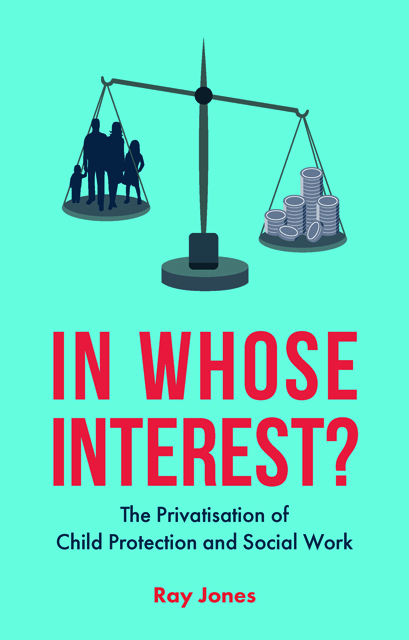one - How did we get here? The recent moves to privatise children’s social services and social work
Published online by Cambridge University Press: 14 April 2023
Summary
For social work and social care it has been a time of crisis. Since 2010 there has been a 40% reduction in central government grant to local authorities, and councils have also been restrained from increasing council tax to replace the government’s shrinking funding. And despite the change of prime minister and chancellor in 2016, and Theresa May’s rhetoric about helping the ‘just managing’, those who are ‘just managing’ and those falling into, or entrenched in, poverty and not managing are promised more austerity, cuts and pain. What funding is available from the government is also being redirected away from areas of high deprivation to more affluent areas – the areas which have been the source of the Conservative government’s voting base.
In 2010 the ‘New Labour’ government’s 13 years in power since 1997 came to an end. Although the government, and Gordon Brown as prime minister, were seen to have generally handled well the international banking crisis of 2008 – a crisis for which, however, it carried some responsibility with its previous policies of banking deregulation which let loose unrestrained banker greed and self-centred stupidity across much of the financial sector – it found the popular right-wing press had turned against it, which, in part, created the consequence that the public also looked for a political change.
Even then the Conservative party, with David Cameron as its relatively new leader, did not get a parliamentary majority. To the surprise of many, and especially many who had tactically voted Liberal Democrat in constituencies to defeat Conservative candidates, the Liberal Democrats led by Nick Clegg entered a partnership with the Conservatives to form a coalition government. With Mr Cameron as Prime Minister, George Osborne as Chancellor of the Exchequer, Michael Gove as Secretary of State for Education, and Andrew Lansley as Health Secretary, the die was cast for a future of politically chosen rapid and radical austerity, with the alternative of Keynesian economics of investment to generate employment and growth rejected. But not only was the policy of austerity and cuts rapid and radical, it has also been recidivist, repeated and reinforced year after year, returning public expenditure to the levels of the 1930s. Public services have had their funding dramatically reduced.
- Type
- Chapter
- Information
- In Whose Interest?The Privatisation of Child Protection and Social Work, pp. 7 - 51Publisher: Bristol University PressPrint publication year: 2018



